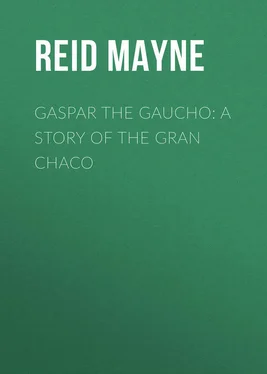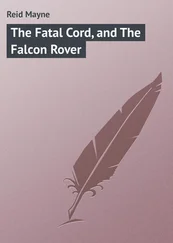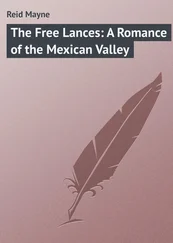Mayne Reid - Gaspar the Gaucho - A Story of the Gran Chaco
Здесь есть возможность читать онлайн «Mayne Reid - Gaspar the Gaucho - A Story of the Gran Chaco» — ознакомительный отрывок электронной книги совершенно бесплатно, а после прочтения отрывка купить полную версию. В некоторых случаях можно слушать аудио, скачать через торрент в формате fb2 и присутствует краткое содержание. Жанр: literature_19, foreign_antique, foreign_prose, на английском языке. Описание произведения, (предисловие) а так же отзывы посетителей доступны на портале библиотеки ЛибКат.
- Название:Gaspar the Gaucho: A Story of the Gran Chaco
- Автор:
- Жанр:
- Год:неизвестен
- ISBN:нет данных
- Рейтинг книги:3 / 5. Голосов: 1
-
Избранное:Добавить в избранное
- Отзывы:
-
Ваша оценка:
- 60
- 1
- 2
- 3
- 4
- 5
Gaspar the Gaucho: A Story of the Gran Chaco: краткое содержание, описание и аннотация
Предлагаем к чтению аннотацию, описание, краткое содержание или предисловие (зависит от того, что написал сам автор книги «Gaspar the Gaucho: A Story of the Gran Chaco»). Если вы не нашли необходимую информацию о книге — напишите в комментариях, мы постараемся отыскать её.
Gaspar the Gaucho: A Story of the Gran Chaco — читать онлайн ознакомительный отрывок
Ниже представлен текст книги, разбитый по страницам. Система сохранения места последней прочитанной страницы, позволяет с удобством читать онлайн бесплатно книгу «Gaspar the Gaucho: A Story of the Gran Chaco», без необходимости каждый раз заново искать на чём Вы остановились. Поставьте закладку, и сможете в любой момент перейти на страницу, на которой закончили чтение.
Интервал:
Закладка:
Two, however, are notably different from the rest; they riding in the advance, with a horse’s length or so of interval between them and their following. One of the two differs only in the style of his dress; being an Indian as the others, and, like them, quite a youth, to all appearance the youngest of the party. Yet also their chief, by reason of his richer and grander dress; his attire being of the most picturesque and costly kind worn by the Chaco savages. Covering his body, from the breast to half-way down his thighs, is a sort of loosely-fitting tunic of white cotton stuff. Sleeveless, it leaves his arm bare from nigh the shoulder to the wrist, around which glistens a bracelet with the sheen of solid gold. His limbs also are bare, save a sort of gartering below the knee, of shell and bead embroidery. On his head is a fillet band ornamented in like manner, with bright plumes, set vertically around it – the tail-feathers of the guacamaya , one of the most superb of South American parrots. But the most distinctive article of his apparel is his manta , a sort of cloak of the poncho kind, hanging loosely behind his back, but altogether different from the well-known garment of the gauchos, which is usually woven from wool. That on the shoulders of the young Indian is of no textile fabric, but the skin of a fawn, tanned and bleached to the softness and whiteness of a dress kid glove, the outward side being elaborately feather-worked in flowers and patterns, the feathers obtained from many a bird of gay plumage.
Of form perfectly symmetrical, the young Indian, save for his complexion, would seem a sort of Apollo, or Hyperion on horseback; while he who rides alongside him, withal that his skin is white, or once was, might well be likened to the Satyr. A man over thirty years of age, tall, and of tough, sinewy frame, with a countenance of the most sinister cast, dressed gaucho fashion, with the wide petticoat breeches lying loose about his limbs, a striped poncho over his shoulders, and a gaudy silken kerchief tied turban-like around his temples. But no gaucho he, nor individual of any honest calling: instead, a criminal of deepest dye, experienced in every sort of villainy. For this man is Rufino Valdez, well-known in Assuncion as one of Francia’s familiars, and more than suspected of being one of his most dexterous assassins .
Chapter Six.
An Old Enemy in a New Place
Could the hunter-naturalist but know what has really occurred in the Tovas tribe, and the nature of the party now approaching, he would not stay an instant longer on the banks of that branch stream; instead, hasten back home with his child fast as their animals could carry them, and once at the estancia, make all haste to get away from it, taking every member of his family along with him. But he has no idea that anything has happened hostile to him or his, nor does he as yet see the troop of travellers, whose merry voices are making the woods ring around them: for, on the moment of his first hearing them, they were at a good distance, and are some considerable time before coming in sight. At first, he had no thought of retreating, nor making any effort to place himself and his child in concealment. And for two reasons: one, because ever since taking up his abode in the Chaco, under the protection of Naraguana, he has enjoyed perfect security, as also the consciousness of it. Therefore, why should he be alarmed now? As a second reason for his not feeling so, an encounter with men, in the mood of those to whom he is listening, could hardly be deemed dangerous. It may be but the Tovas chief and his people, on return to the town they had abandoned; and, in all likelihood, it is they. So, for a time, thinks he.
But, again, it may not be; and if any other Indians – if a band of Anguite, or Guaycurus, both at enmity with the Tovas – then would they be also enemies to him, and his position one of great peril. And now once more reflecting on the sudden, as unexplained, disappearance of the latter from their old place of residence – to say the least, a matter of much mystery – bethinking himself, also, that he is quite twenty miles from his estancia, and for any chances of retreat, or shifts for safety, worse off than if he were alone, he at length, and very naturally, feels an apprehension stealing over him. Indeed, not stealing, nor coming upon him slowly, but fast gathering, and in full force. At all events, as he knows nothing of who or what the people approaching may be, it is an encounter that should, if possible, be avoided. Prudence so counsels, and it is but a question how this can best be done. Will they turn heads round, and go galloping back? Or ride in among the bushes, and there remain under cover till the Indians have passed? If these should prove to be Tovas, they could discover themselves and join them; if not, then take the chances of travelling behind them, and getting back home unobserved.
The former course he is most inclined to; but glancing up the bank, for he is still on the water’s edge, he sees that the sloping path he had descended, and by which he must return, is exposed to view from the opposite side of the stream, to a distance of some two hundred yards. To reach the summit of the slope, and get under cover of the trees crowning it, would take some time. True, only a minute or two; but that may be more than he can spare, since the voices seem now very near, and those he would shun must show themselves almost immediately. And to be seen retreating would serve no good purpose; instead, do him a damage, by challenging the hostility of the Indians, if they be not Tovas. Even so, were he alone, well-horsed as he believes himself to be – and in reality is – he would risk the attempt, and, like enough, reach his estancia in safety. But encumbered with Francesca on her diminutive steed, he knows they would have no chance in a chase across the pampa , with the red Centaurs pursuing. Therefore, not for an instant, or only one, entertains he thought of flight. In a second he sees it would not avail them, and decides on the other alternative – concealment. He has already made a hasty inspection of the ground near by, and sees, commencing at no great distance off, and running along the water’s edge, a grove of sumac trees which, with their parasites and other plants twining around their stems and branches, form a complete labyrinth of leaves. The very shelter he is in search of; and heading his horse towards it, at the same time telling Francesca to follow, he rides in by the first opening that offers. Fortunately he has struck upon a tapir path, which makes it easier for them to pass through the underwood, and they are soon, with their horses, well screened from view. Perhaps, better would it have been for them had they continued on, without making any stop, though not certain this, for it might have been all one in the end. As it is, still in doubt, half under the belief that he may be retreating from an imaginary danger – running away from friends instead of foes – as soon as well within the thicket, Halberger reins up again, at a point where he commands a view of the ford as it enters on the opposite side of the stream. A little glade gives room for the two animals to stand side by side, and drawing Francesca’s pony close up to his saddle-flap, he cautions her to keep it there steadily, as also to be silent herself. The girl needs not such admonition. No simple child she, accustomed only to the safe ways of cities and civilised life; but one knowing a great deal of that which is savage; and young though she is, having experienced trials, vicissitudes and dangers. That there is danger impending over them now, or the possibility of it, she is quite as conscious as her father, and equally observant of caution; therefore, she holds her pony well in hand, patting it on the neck to keep it quiet.
Читать дальшеИнтервал:
Закладка:
Похожие книги на «Gaspar the Gaucho: A Story of the Gran Chaco»
Представляем Вашему вниманию похожие книги на «Gaspar the Gaucho: A Story of the Gran Chaco» списком для выбора. Мы отобрали схожую по названию и смыслу литературу в надежде предоставить читателям больше вариантов отыскать новые, интересные, ещё непрочитанные произведения.
Обсуждение, отзывы о книге «Gaspar the Gaucho: A Story of the Gran Chaco» и просто собственные мнения читателей. Оставьте ваши комментарии, напишите, что Вы думаете о произведении, его смысле или главных героях. Укажите что конкретно понравилось, а что нет, и почему Вы так считаете.












